Shelley Parker-Chan (they/them) is an Asian Australian former international development adviser who worked on human rights, gender equality and LGBTQ+ rights in Southeast Asia. Their debut historical fantasy novel She Who Became the Sun was a #1 Sunday Times bestseller and has been translated into 15 languages. Parker-Chan is a previous winner of the Astounding Award for Best Debut, and the British Fantasy Awards for Best Fantasy Novel and Best Newcomer. They have been a finalist for the Lambda, Locus, Aurealis, Ditmar, and British Book Awards. They live in Melbourne, Australia.
I had the opportunity to interview Shelley, which you can read below.
First of all, welcome to Geeks OUT! Could you tell us a little about yourself?
Hello, thanks for having me! I’m Shelley Parker-Chan, and I write highly emotional, ostensibly historically based, epic fantasy novels. I’m Australian, but I’ve spent a lot of my working life in Asia.
What can you tell us about your upcoming book, He Who Drowned the World?
Drowned is a direct sequel to She Who Became the Sun, and picks up just a couple of months after the action of that first book. The two books of the duology are organised around the Buddhist principle that desire begets suffering. The first book was very much about desire, especially as experienced by people traditionally denied it: women, queer people. The characters’ desires ranged from basic survival, to the ambition to become the greatest person in the world: the emperor. In Drowned, we see the other side of the equation. We see the suffering and sacrifices that are the price of those desires. And it asks: is it worth it?
What was the inspiration for your original series The Radiant Emperor duology, which includes She Who Became the Sun and He Who Drowned the World?
The idea came out of my weird obsession with monks. I know the image we hold of them doesn’t reflect their lived reality, either now or historically, but I’m fascinated by the idea of people who set aside worldly interests in favour of the pursuit of self-perfection. Of being ‘good’, according to a set of rules. But even more than a monk, I love the idea of a bad monk: someone who can’t—or doesn’t want to—overcome their ambition, their desire, their attachment to the world. So I was playing around with the idea of monks in a wartime setting: a monk who deliberately violates their vows of nonviolence to defend their people.
And then, lo and behold: I came across the life of Zhu Yuanzhang, who started life as a peasant in Mongol-occupied China. He became a monk, then a rebel commander, then finally the founding emperor of the Ming dynasty. I was like: aha! He’s my bad monk. But I realised I also wanted to twist the story. What if I took this man, whose whose ambition and capacity for violence led him to become the ultimate patriarch, and made him not a man? How would that change the meaning of his ambition, and rise, and rule?
As a writer, what drew you to the art of storytelling, specifically speculative and historical fiction?
Like lots of people these days, I started off writing fanfiction. Fanfiction was a cradle of queerness in a time when there was so little of it in mainstream media. It was where we subverted the texts to add our queer selves back in. It was a sort of communal yearning, but also a source of communal joy. It taught me to write what I liked, and how to express my authentic self on the page, and that if you wrote truly you would always find people who would recognise those words as true for themselves, too. A lot of fanfiction stories are romances, structurally speaking, but the ones I read and wrote were based on SFF media. Fantasy and science fiction, like historical fiction, give a lot of room to play with big stakes: life and death, and the times when love isn’t enough because there’s something more important: duty, or the fate of the world. I love writing in that slightly melodramatic register. It makes the feelings more intense.
How would you describe your writing process?
I start by laying out a plot in Excel. I put a timeline down the side of a sheet, the POV characters across the top, and then I fill each cell with a scene. By the time I start drafting, that plot is pretty fixed. But plot is a far less important element to my stories than the characters and their emotions. I like to call my subgenre ‘emo fantasy’, because it’s all angst, all the time. So when I’m drafting, I spend inordinate amounts of time shaping and re-shaping character arcs, and making sure I understand what they feel and think at every moment. I’ll have to write a scene twenty times, with twenty slight variations on a character’s understanding of themself, before I find the one that works for their arc, the story themes, AND the plot. I guess it’s a form of discovery writing. But as a process, it’s definitely slow and frustrating.
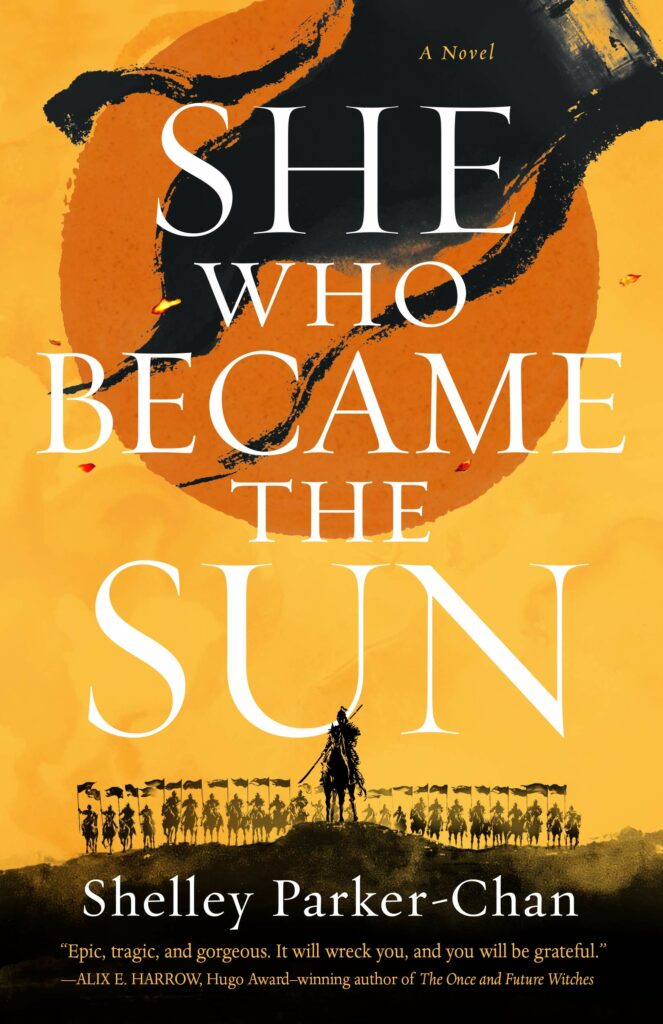
What are some of your favorite elements of writing? What do you consider some of the most frustrating and/or challenging?
I love thinking about character. What makes characters tick, and how they relate to themselves and each other. I could do it forever. But there are so many aspects of the craft of fiction writing that I’m still learning. I really struggle with simple things, like starting and ending scenes. How to feed in details about the world, how to build those mini plot arcs that keep the reader engaged, how to keep dialogue moving. I’m inspired by the authors I know who sit down and really study these elements, and learn how to execute them—not just well, but quickly.
In previous interviews, you’ve spoken about an interesting part of literary background, of being heavily influenced by Asian historical dramas while emphasizing the distinction of writing from a diasporic lens. Would you spend expanding on that please?
I first started watching Asian TV dramas when I was a young adult, living in Asia for the first time. I was raised in Australia, and when I was growing up if you saw an Asian onscreen (which was super rare), they were usually some kind of joke or horrible stereotype. They were never fully-realised human beings the way the white characters were. So when I started watching Asian dramas, I was blown away. Not only did I see characters who shared the same values and cultural worldview as me, but the full-Asian casts meant that Asians could be any and every kind of character: the heroes, the villains, the love interests, warriors, scholars. I knew I wanted to write a story like that in English—the story I’d never had, growing up.
But at the same time, I’m from the diaspora. Even if I fill my story with Asians, and set it in China, I don’t have the same worldview as someone who grew up in that environment. My perspectives are shaped by being a minority in a white-majority country. Some of that is the simple feelings of rejection, exclusion, of being misunderstood. And you can see those themes in my work. But being diaspora goes deeper. It comes with ambivalence, as well as pride, because aspects of my traditional culture also reject who I am. Reimagining the history of imperial China is my attempt to grapple with the exclusionary elements of the history and culture that’s been bequeathed to me. What if what had been handed down had been different? What if I didn’t have to feel this painful ambivalence, because my culture actually embraced queerness?
As a writer, who or what would you say are some of your greatest creative influences and/or sources of inspiration in general?
I almost exclusively read nonfiction and romances, which gives me a lot of trouble as someone who gets asked to blurb epic fantasy books. On the nonfiction side, I read a lot of memoirs, biographies, psychology, philosophy of the self and the emotions, gender studies, religion, nature writing—it all feeds my understanding of how people work, the variety of ways we can be in the world, what consumes us. And as for romances: they’re usually purely character driven, which is the good stuff as far as I’m concerned. I’m constantly looking for stories that have a raw and uncomfortable edge, and that give me big feelings. That’s what I want to learn to write well.
Many authors would say one of the most challenging parts of writing a book is finishing one. What strategies would you say helped you accomplish this?
Especially for a first book, I think mutual accountability with friends was the most helpful thing in getting me to the finish line. If I hadn’t been on a journey with them, I’d probably have quit halfway through, thinking, “oh, this is shit, it will never be as good as I’d imagined it to be, I’d better start something else.” But when I saw them grinding away at their books, and bemoaning the process as much as I was, I understood that the bad feelings were normal—and if they could get through them, I could too. I think it also helps to believe that you’re writing the book that only you can write. Even if it didn’t turn out how you dreamed, it’s your unique contribution to the world.
Besides your work, what are some things you would want your readers to know about you?
If you know my work, then you basically know all of me that there is to know.
What’s a question you haven’t been asked yet but wish you were (and the answer to that question)?
I’m offended that nobody yet has asked me about how I organise my bookshelves. The answer is: by subject for nonfiction; by era and country for literary fiction; and by how much I like them, for genre fiction. I’m ruthless about fiction, though. If it’s not a re-read, then it’s instantly off to the nearest Little Library.
Are there any projects you are working on or thinking about that you are able to discuss?
I want to do something different after a historical fantasy, so I’m working on a secondary world fantasy. It’ll still feel like one of my books, though. It seems I can’t escape the lure of exploring gender and daddy issues.
Finally, what LGBTQ+ books/authors would you recommend to the readers of Geeks OUT?
I’ve long loved Lee Mandelo’s horror-fantasy works starting from his debut Summer Sons, and his new one goes even harder. It’s called The Woods All Black, and it’s about anti-trans small-town religious bigotry—and monsterfucking. The cathartic queer rage it delivers is EPIC.
Header Photo Credit Harvard Wang, 2018

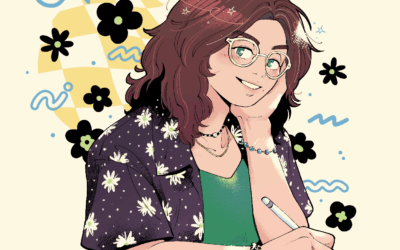
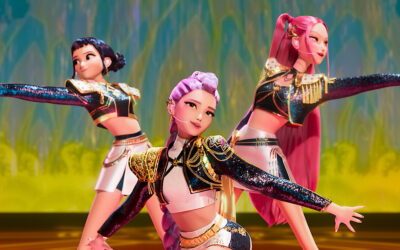
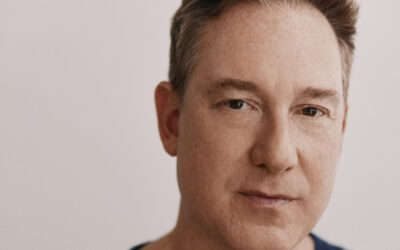
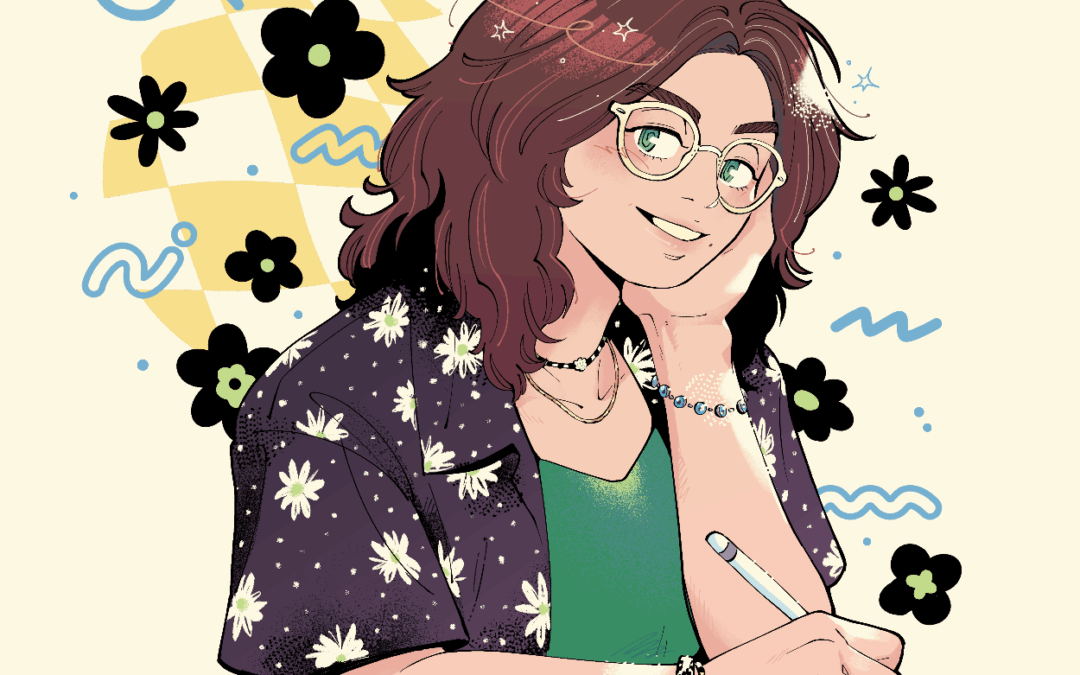
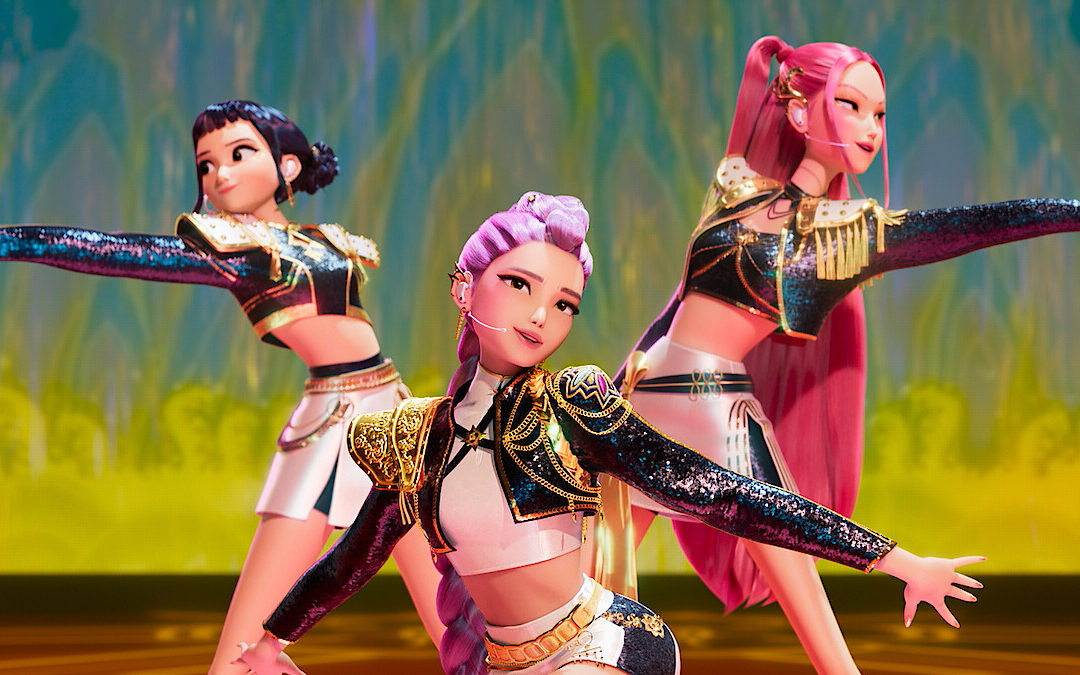
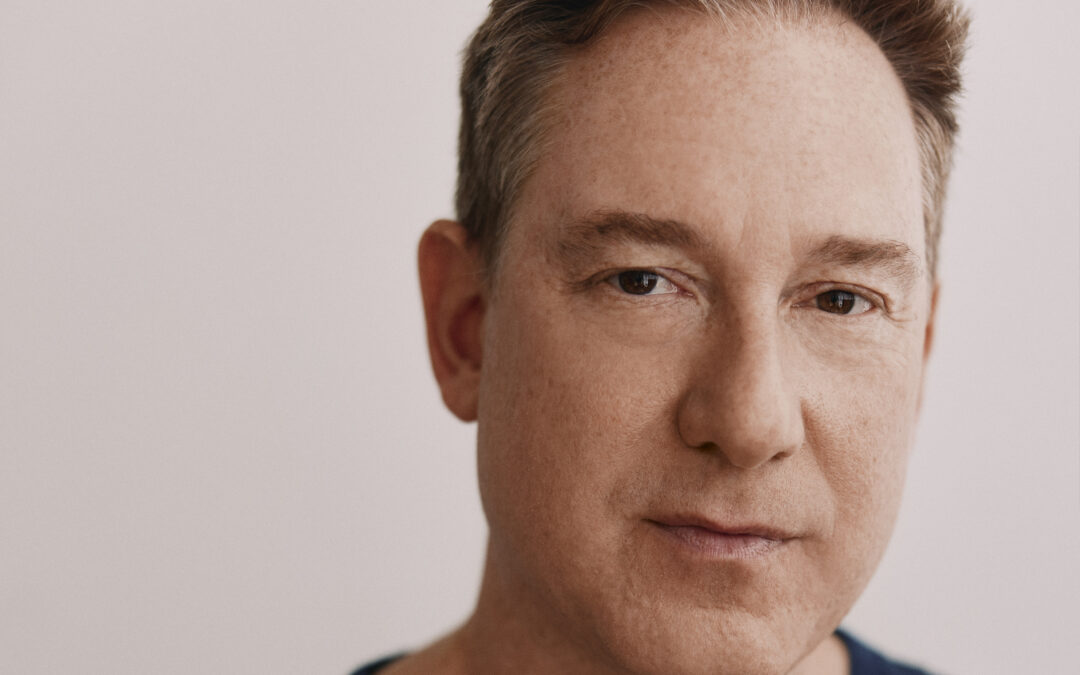
0 Comments